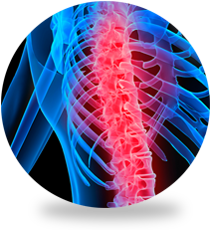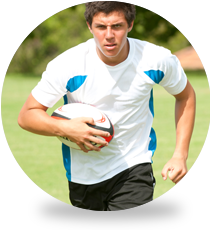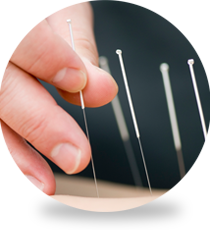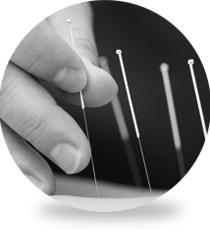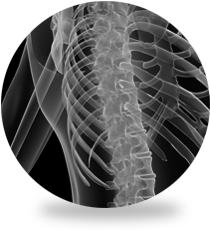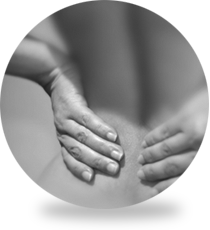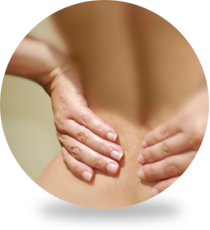Physiotherapy & Osteopathy for:
Shoulder Pain (inc. Frozen Shoulder)
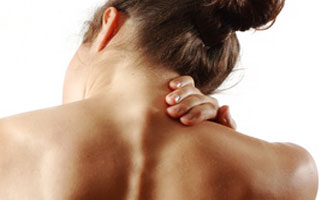 The shoulder is a common area for injury and the cause of a great deal of distress in patients of all ages. As people age they naturally become a more flexed forward in their upper spine and in younger people (especially those who sit at desks and PC's all day) their posture also over time becomes compromised. This can induce neck and back symptoms and is also a common cause of shoulder problems. The upper girdle (shoulder blades, collar bones and arms) sit on the upper thorax and are held in position by the muscles of the shoulder and back. This means that when the posture rolls forward and the shoulders slump, the position of the shoulders is affected and they are far more likely to become dysfunctional and inflamed.
The shoulder is a common area for injury and the cause of a great deal of distress in patients of all ages. As people age they naturally become a more flexed forward in their upper spine and in younger people (especially those who sit at desks and PC's all day) their posture also over time becomes compromised. This can induce neck and back symptoms and is also a common cause of shoulder problems. The upper girdle (shoulder blades, collar bones and arms) sit on the upper thorax and are held in position by the muscles of the shoulder and back. This means that when the posture rolls forward and the shoulders slump, the position of the shoulders is affected and they are far more likely to become dysfunctional and inflamed.
In many cases these problems occur in the smaller muscles / tendons of the shoulder which help control the position of the shoulder, the 'Rotator Cuff Muscles' but more serious conditions can also arise such as follows.
Sub Acromial Impingement
The area where the rotator cuff moves is protected by special soft tissue called the bursa (a bit like a fluid filled sac or cushion). The rotator cuff and the bursa can rub on, or get squeezed by the collar bone or shoulder blade. Over time this can gradually weaken your shoulder and cause pain when you raise your arm above shoulder height or lie down on the shoulder. Acromioplasty is the surgical procedures designed to make more room for the tendons of the rotator cuff as they pass below the Acromion, whatever the cause of the impingement, and there are many. This is accomplished by removing bone spurs that the tendon rubs on in order to make more room for the tendon to glide normally. At the same time the bursa between the rotator cuff and the underside of the acromion (tip of the shoulder blade) that is inflamed by the impingement process may also be removed. The surgery for shoulder impingement is known as 'sub-acromial decompression'.
Rotator-Cuff Tear
This is often caused by a fall, trauma or lifting something heavy, but they also occur spontaneously. You will often feel sudden pain and have weakness in your shoulder immediately. This can result in very serious cases the necessity for surgery to correct the issue.
Frozen Shoulder
This term is often used to describe painful restriction of shoulder movement. For example, Sub Acromial Impingement or Rotator Cuff tear are often mis-described as a frozen shoulder. However, true frozen shoulder should describe the condition of Adhesive Capsulitis. In this process the soft capsule around the joint becomes thickened and inflamed over a number of months and can also take many months to resolve. Correct exercise and manual therapy can help reduce the time take for the condition to recover.
These conditions can be very limiting for patients and because of the excellent neurological innervations of the area cause high levels of discomfort. One of the best and least intrusive treatments is manual therapy and rehabilitative exercises but these do require a lot of effort on behalf of the patient and some discomfort during their application.
For more information on shoulder pain or to book an appointment please call 01737 247 555 or email us at reception@parkviewclinic.co.uk
Get in touch...
If you have any questions in regards to any of the services we offer or any of the conditions we treat please don't hesitate to get in touch.
Get 10% OFF Your Initial
Booking. DOWNLOAD Now!!
TIME LIMITED OFFER
We respect your email privacy
Your Discount Coupon will be automatically sent to you via email once you have confirmed your request.
Other Conditions
Privacy Policy
By continuing to browse the site you agree to our policy.
To view our policy please click here.

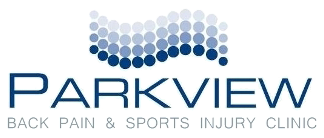
 When I first came to you, I could not put weight fully on my knees and I found it difficult to walk. I was pleased that after only three weeks I felt a difference.I can now take long walks. I can also play my sports without pain. I would certainly recommend you to anyone.
When I first came to you, I could not put weight fully on my knees and I found it difficult to walk. I was pleased that after only three weeks I felt a difference.I can now take long walks. I can also play my sports without pain. I would certainly recommend you to anyone.


